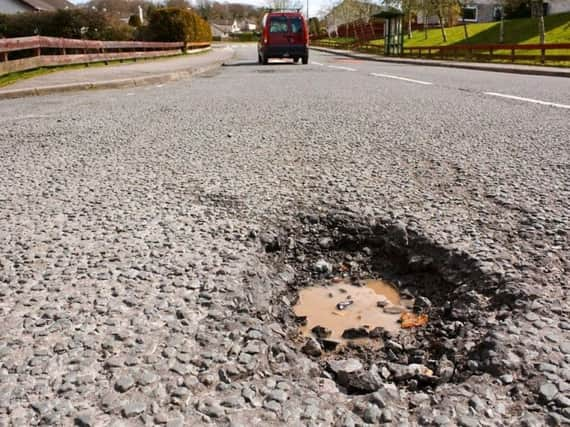County Council: '˜We now have £12.4m to spend on potholes'


Lincolnshire County Council now has a total of £12.4 to spend on potholes, road repairs and other improvements in 2018/19, which includes the £9m previously earmarked by the council for this financial year.
As previously reported, Lincolnshire’s allocation of this extra funding is the third-highest most in the country, only behind North East Combined Authority (£4,533,373) and Devon (£4,446,606).
Advertisement
Hide AdAdvertisement
Hide AdCouncillor Richard Davies, executive member for highways, said: “The weather has been a nightmare for the county’s roads this winter, but it’s reassuring that central government has recognised the scope of the issues we’re facing here in Lincolnshire at the moment.
“We’ve already brought in additional teams to help deal with the extra workload, and this £3.4m means we can be even more proactive in bringing our roads closer to the standard we like them to be in.
“We’re also finalising our Lincolnshire Pothole Plan at the moment, which will overview key problem areas around the county, as well as our revised approach to dealing with potholes, including the technologies we use.”
This additional £3.4m brings the total investment in Lincolnshire’s roads to £37.4m for 2018/19 – £2m more than 2017/18.
Advertisement
Hide AdAdvertisement
Hide AdCoun Davies added: “With 5,500 miles of road to maintain, we’ll be sure to make every penny count towards keeping the county’s roads in the best possible condition with the cash that’s available.
“While this extra funding is very welcome, it is nowhere near the £300m backlog of repairs we have here in the county. This is why we are always lobbying government for additional funding for Lincolnshire.
“If councils here received the average funding for council areas in England, the region would benefit from £116 million of extra funding for services every year – some of which could be used towards highways repairs. That would make a massive difference.”